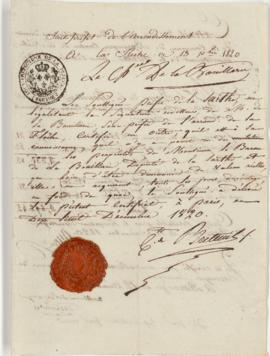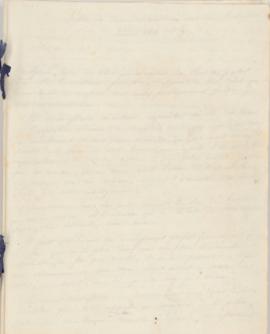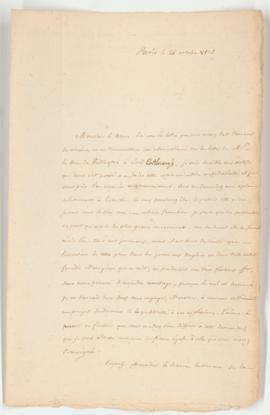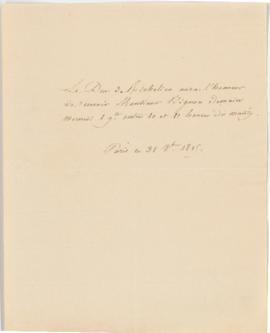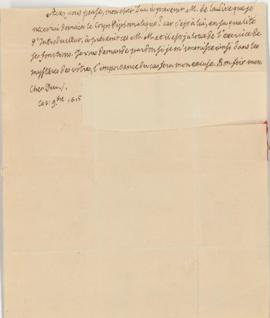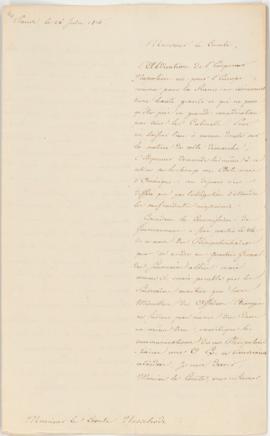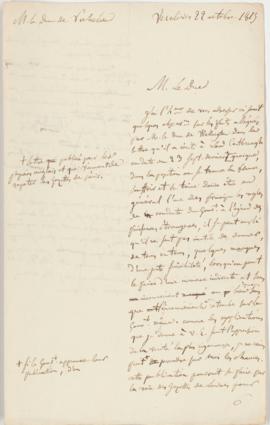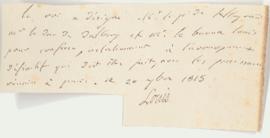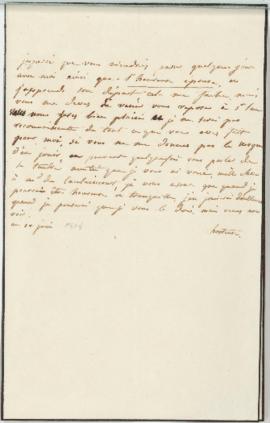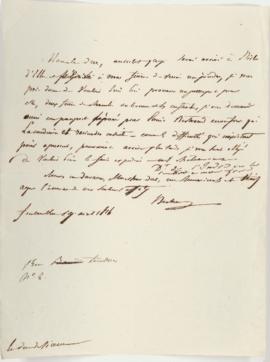Fouché criticizes Louis XVIII’s decision to send him in de facto exile as ambassador to Saxony (p.1-2). Referencing Solon’s reconciliation, Fouché asks Wellington to lend the weight of his name and character to his own cause in need of reconciliation. Description of the Hundred Days Campaign and the subsequent unease concerning the question of Napoleon’s succession (5-6). Question of Napoleonic legitimacy (7-8). Fouché offers a defense of his action during the Restoration, portraying himself as a staunch, honorable individual in the midst of political turmoil (9-19). Focuhé describes his service and ‘devotion’ to the King (19-24). Role of the police force in reestablishing order, justice, and the safety of the state (24-27). Description of public liberty and influence over the people in a time of political upheaval (27-35). An evaluation of the glory of Napoleon’s rule, as well as the problem of the concentration of power within the hands of a single individual (36-39). Importance of balance of political power (39-41). Beginning of concluding remarks; Fouché’s description of his resignation, general reflections on the political climate (41-48).

